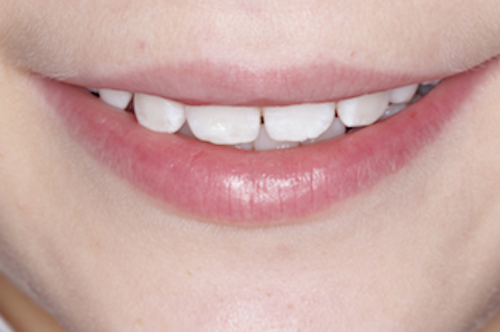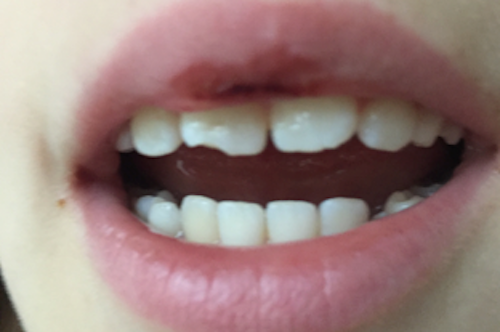DENTAL EMERGENCIES
For patients without a dentist, we offer Rapid Rescue, a service that gives you trustworthy advice and emergency care at the same appointment.
For patients without a dentist, we offer Rapid Rescue, a service that gives you trustworthy advice and emergency care at the same appointment.
OUR DENTAL TREATMENTS
Dental emergencies – our advice for those moments you’d rather not have.
Not registered yet? Do not worry, we still want to help.
For patients without a dentist, we offer Rapid Rescue, a service that gives you trustworthy advice and emergency care at the same appointment. We can provide temporary dental treatment at this appointment, including pain relieving dressings, medications, temporary fillings, plus any x-rays needed, all of which is included in our Rapid Rescue appointment.
If you like us, you can even come again.
Simply Health patients
If you are away from home, you will be reassured to know that part of your Simply Health membership is access to Simply Health dentists all around the UK (if over 40 miles from home) and the world. Please call Simply Health on 0800 401 402.
Simply Health worldwide cover applies to all levels of Simply Health membership from Simply Health Care to Simply Health Essentials.
Help at home
If you are experiencing any of the following emergencies at home you will want to know how to look after yourself best until a VIDA dentist sees you. We have put together a useful guide to helping at home.
First of all, some tender loving care is needed. Reassure your child as they may be feeling shocked and worried and it is important for them to know that a dentist is going to help them and be very gentle with them. We repair chips and breakages every day. Below is a picture of a 9 year old patient who had their tooth repaired with us. Can you tell which tooth she broke? No, nobody can now that we have fixed it! She did not need any anaesthetic and when she got home, her Dad asked, “Which tooth was broken?”
A dentist will only want to look at your child’s mouth and will not advise any treatment that will upset your child, so please don’t let your child worry about their visit. It may be appropriate to give your child some analgesic medicine such as Calpol or Nurofen to help relieve any soreness arising from the accident.
Your dentist will ask for as much detail about the accident as possible, to ensure they check any other areas that may have been affected without the child realizing, such as teeth in the opposite jaw, or lips, cheeks, tongues. Full diagnosis is our best means of monitoring your child’s healing and preventing further problems.
Before and After (hover or slide to view):


Sensitivity from lost fillings is unpleasant and can become more of a nagging, constant pain if the tooth is left exposed. The tooth may hurt every time you drink, eat or breathe. Sharp edges may catch your tongue lips and cheek and within hours you may be suffering with an ulcer or swelling caused by trauma. Using temporary material will reduce the likelihood of this type of escalation.
If the tooth is sensitive then it is best to cover the sensitive area with a temporary material as quickly as possible. Never use materials that do not specifically state for dental use as you may incur unnecessary dental damage or costs by using inappropriate materials. We do not advise using any ‘permanent’ dental materials either, as it is important a VIDA dentist can check the underlying tooth before it is repaired.
If you have purchased an emergency kit from the VIDA shop in our reception, you will have a safe temporary material you can apply directly to the broken tooth. Some patients find a friend or relative can more easily see the affected tooth and apply the material for you.
If you do not have a VIDA kit, you can find similar at most pharmacies or large supermarkets. Some kits require the material to be mixed on a small pad. If a pad and a mixing spatula is not supplied with the kit and you are really caught short, you can try using a clean dinner plate to mix on, and the end of a clean teaspoon in circular movements may combine two materials rather nicely. In the absence of dental instruments to shape the temporary filling with, it may be possible to roll the temporary material into a small ball and then press it over the broken area, adapting it against the breakage. Before the filling hardens, remember to bite down against the tooth and temporary filling to check you have left enough space to bite comfortably and then gently sweep away any excess with your finger and discard. This unrefined shape will affect your tooth cleaning and you must still see us as quickly as possible to prevent a gum problem or decay arising from this suboptimal shape.
If you are unable to attend the practice quickly, we advise an antiseptic mouthwash such as saltwater or chlorhexidine mouthwash from a supermarket or local pharmacy.
If your child has knocked out a baby tooth, the current advice is to not attempt to put it back in.
Preserve the tooth in saliva (we suggest a small container or sandwich bag) or milk. Call us immediately and we will prioritise your child being seen. Make sure you don’t handle the tooth unnecessarily. Your VIDA dentist will want to see the tooth as well as your child to ensure you receive the best advice and most accurate diagnosis.
Please ensure your child receives TLC and reassurance as they may be feeling shocked and worried and will need to know that a dentist is going to help them and be very gentle with them. A dentist will only want to look at your child’s mouth and will not advise any treatment that will upset your child, so please don’t let your child worry about their visit. It may be appropriate to give your child some analgesic medicine such as Calpol or Nurofen to help relieve any soreness arising from the accident.
Your dentist will ask for as much detail about the accident as possible, to ensure they check any other areas that may have been affected without the child realizing, such as teeth in the opposite jaw, or lips, cheeks, tongues. Full diagnosis is our best means of monitoring your child’s healing and preventing further problems.
If an adult tooth has been knocked out, either in an older child or in an adult, ideal management is to see a VIDA dentist as soon as possible. If helping at home, follow the precaution of NOT handling the tooth by its root, ensure that the tooth has no visible debris on it (such as mud from a rugby pitch!) and then gently push it back inside the socket it came from. You will probably displace a little blood clot from the socket- simply wipe away with a clean tissue and reassure your patient! Antibiotics may be required therefore in any patient with known medical problems and increased risk of infections it really is best to consult a dentist or doctor as soon as possible.
A sore gum may not be a dental emergency however it may be the sign of an abscess. An abscess can occur without any toothache at all. If you suspect an abscess, keep your mouth clean with a chlorhexidine mouthwash or hot saltwater until you can see us.
Anti-inflammatory medications are not suitable for patients with asthma, stomach problems, or those unable to take non-steroidal anti-inflammatory drugs, however in most other patients they may help limit any swelling from sore gums and this can be useful until you see a VIDA dentist.
Sore gums generally may be a sign of gum disease. You may see bleeding and the gums may appear generally red and puffy. The soreness can worsen and this may be a sign of an infection. Simply keep the mouth very clean with brushing and flossing, use a hot salt mouth rinse, and chlorhexidine mouthwash (from a local pharmacy, supermarket or VIDA dental shop) and give us a call to schedule a time to see us.
Contrary to popular belief, wisdom teeth can erupt at any stage of life although it is more likely in your late teens and early twenties. It is always best to have a suspected wisdom tooth problem checked out before it escalates.
The most common problem with wisdom teeth is pain, swelling and heat in the gum and face around the tooth. This responds well to chlorhexidine mouthwash (purchased at a local pharmacy, supermarket or VIDA dental shop) or simply a hot salt mouth rinse.
Our advice is to take a level teaspoon of salt, place in a cup of HOT water (not scalding, but as hot as is bearable), take a sip and tilt head so hot water sits over the affected tooth, until the heat has left the water, and then repeat. Doing this several times a day will help limit the problem until you can see a VIDA dentist.
Wisdom tooth problems may cause tightness to cause limited mouth opening and for this it may be appropriate to take regular anti inflammatories (if your medical history allows you to take them) with food for several days. This should relieve the tightness unless there is also an infection. Ensure you continue to consume fluids and if necessary liquidated food; weakness through lack of food can quickly compound these problems and pose a threat to your general health. Antibiotics may be required to fully resolve the problem and VIDA dentists can dispense antibiotics on the spot when they are needed, but we must examine you first.
Dentists are experts in facial injuries however you may be better to visit your local A & E department if you have facial lacerations likely to require stitches or if there could be facial bone fractures.
We are able to provide assessment of damage to teeth but it may be better to have soft tissue injuries addressed first as bleeding from these cuts is likely to affect the quality of the work we do on your teeth.
Head injury and potentially broken facial bones may need to be dealt with prior to attending to dental injuries. We welcome you giving us a call to alert us to your problem before you attend A & E and we will be ready to see you once the hospital has cleared you of any head injury.
We have a Oral Surgeon on our team however the hospital setting is the most appropriate environment for management of more serious facial and dental injuries.
Please do call us for our advice if unsure how to proceed.